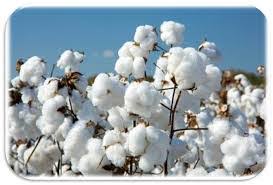The Minister of State for Industry, Trade and Investment, Mrs Aisha Abubakar has said that the Federal Government would exploit potential in the cotton sector by empowering producers to enhance their productivity.
Speaking at the 16th African Cotton Association (ACA) Annual International Congress in Abuja on Thursday, she stressed that cotton was important to the economic development of not only the individual producing countries but also to the entire African continent cannot be over emphasised.
Abubakar said that in Africa, the sector provided a means of livelihood to millions of smallholder farmers, whose economic lives revolved around the production, processing, transportation, food and non-food activities, adding that for these reasons, most countries of the world were adopting new strategies toward reviving cotton production and processing as critical element in socio-economic development, especially in rural areas.
“Cotton, no doubt offers to the African economies unprecedented opportunities for economic growth and development. Unfortunately, the sector is not making the desired impact on the economies which depend on it as a source of income and foreign exchange.
“Asia and India produce 60 per cent of global output, while Africa produces only about 16 per cent in spite of our huge potential for the production. The global market value was about 1.6 trillion dollars in 2015 alone, and this shows how important the sector is to the economies of the producing countries. It, therefore, means that Africa’s quest for industrialisation can be achieved by developing this viable sector,’’ she said.
According to her, most producing countries in Africa export raw cotton with little or no value addition, which has become a major concern to us now.
“Our challenge is how to grow and process to sustain this quest. The continued export of cotton lint by Africa producers is unsustainable in view of global instability in the prices of cotton.
“The development of this sector in Africa relies on our ability to influence both its production and trade. To do this effectively, we must leverage on our potential and develop our capacities by strengthening the sector and providing producers the support to enhance competitiveness and improve technology.’’
Abubakar said that Nigeria would welcome any research findings and support innovation that would enhance the ability to develop and tap the enormous benefits of the sector from the congress.
The Minister of Agriculture and Rural Development, Chief Audu Ogbeh said that cotton was at a point one of the largest employer of labour in the country before the discovery of oil.
Represented by Mr Yarima Uba, Team Leader of Cotton Value Chain in the ministry, Ogbeh said that the country’s current seed cotton production stood at 98,000 to 112,000 tonnes, while cotton lint was about 70,000 to 80,000 tonnes.
According to him, cotton crop was seen as the most miraculous natural fibre under the sun and it is referred to as white gold in the country.
He explained that the current trend in the international oil market had resulted in the urgent need to diversify the revenue base of the country’s economy and conserve foreign reserve by limiting imported goods.
The minister assured the stakeholders of government’s commitment to provide enabling environment through policies and incentives that would attract private sector investment in the country.
In his remarks, Mr Abubakar Moriki, the Chairman, House of Representatives Committee on Industry said that there was a sharp decrease in cotton farming.
He said that statistics revealed that the contribution of the sector to the country’s Gross Domestic Product (GDP) fell from about 25 per cent in 1980 to about five per cent according to recent indicator.
“This sharp decline has been due to lack of mechanisation of the production process, lack of improved cotton seed, diseases and inconsistent government policies.’’
He advised government to invest in cotton production and provide not only the necessary enabling environment but improve the process of production through modern mechanisation as a panacea to boosting production in the country.
The congress with the theme: “Mechanised Cotton Farming: Essential Requirement to Boost Africa Cotton Production’’, brought stakeholders across Africa countries to brainstorm on the way forward in the sector.


